
P. 83
“Isn’t it strange how most significant human activity has to do with loss? Because we lose things we try to find them. The trying sends us on a journey. We encounter other things, things we hadn’t noticed that we had lost: and then we create. Art springs out of both Alienation and loss. Art replaces what we have lost in spirit. It is therefore a magic replacement. And so it would seem that art is a condition of unease, of dislocation, of being out of it all, an exile. Art cannot come from the happy and contented, from the lucky and the beautiful, from the blessed and the whole, unless an unrevealed tragic condition or premonition dwells under it all like an unseen volcano or an unsuspected cataclysm about to wipe away all that unnatural tranquility. The last days of beautiful things are the most artistic. It seems then that art is a secret sign of dwelling under a guillotine, under a swinging sign of doom, under a hidden question mark, beneath the dread of death, in unwholeness, wanting to be healed and to heal, with a whiff of mortality and the inferno in one’s spirit, with a sense of sin, of unredemption. It seems that art is a magic plea, a magic howl, an enchanted cry, a delaying of madness, a deflection of insomnia, a canalizing of negative energies. Art is finding one’s way in the dark, seeing with one’s fingers, divining water in the desert, creating an abstract realm made up in the mind of others to replace the realms of childhood and innocence lost for ever with the death of a mother. Art is finding a new homeland, and yet always setting sail. It is being deceived and lured by the gods into roaming cities behind in search of that which can never be found, but which keeps moving like a bird, a magic bird, or a love, or an ocean. But it keeps driving us on, keeps us going, till the skeleton wanders into a golden gate, and into a sunlit landscape where the sunlight is a perpetual darkness, while another part of us has ceased its wanderings, having found what it was looking for in a place where nothing is ever lost or found, a place without a name or an idea. Which is why there is a fatality in finding, and an agony in seeking. But between seeking and finding there is another place, a special place, and maybe it is such a place that we journey towards now...we are journeying towards an elusive thing in the desert, where thirst is quenched miraculously in the air, and the fragrance of a great love lingers in the shade…”
p. 93
“Let me tell you the secret of the butterfly. The beauty of the butterfly’s wings is a disguise, a secret language. To us, they are just beautiful, but they conceal another purpose. They are used to communicate with other butterflies. That is what art is. It's the hidden speaking to the hidden. All art is a secret language, a double language. And it does something other than what it appears to be doing. Sometimes it is effecting a secret cure on our spirit while being coruscating on the outside. Art has a sphinx-like quality, a faintly sinister quality. The sinister intelligence of the double function. Art is the ultimate spy. And you know that’s what our journey is. It has many secret languages, and secret purposes. And we’ll discover them as we go along. And we’ll fail on the way. I don’t mind failure; it’s something to get past on the way to greatness.”
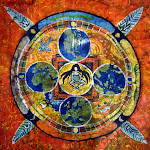
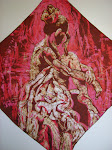

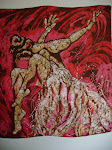

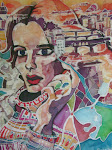
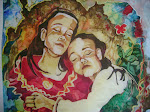
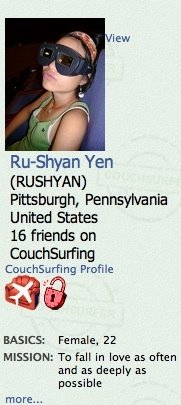
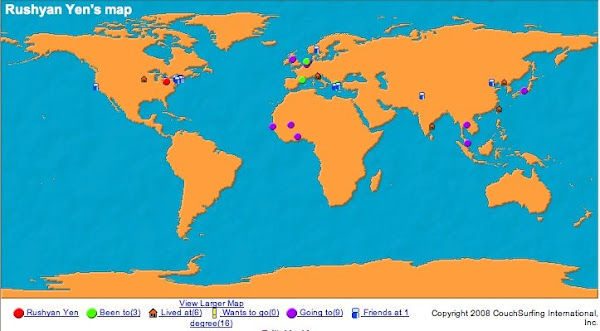
1 comment:
I'm really pleased that you've been getting so much enjoyment out of my books. The first quote you selected from the book really makes me think of you. Your great appreciation of happiness because of your constant fear that is something that you will lose. Your work seems to spring from your happiness, but is pushed by your anxiety that the happiness can always be lost. ^o^;;; Really, in the same way that the quote I emailed you yesterday made me immediately think of you in Atlas Shrugged, if I had read In Arcadia this quote would have immediately made me think of you.
Now I have a request for you. What were all the books you've recommended I read since you arrived. What is the book that was similar to My Side of the Mountain, but better? What was the book written by the author of The Life of Pi, but which you enjoyed more. What was the other Tom Robbins book you read? What was the picture travel diary that you told me about on the train when we were headed to Spa World? What other books do you recommend? I am going to go used book shop crawling later this week, and I want to try and pick up as many of those books as I can find!
You can either reply here where your other blog readers can appreciate book recommendations, or you can email me them later.
Post a Comment